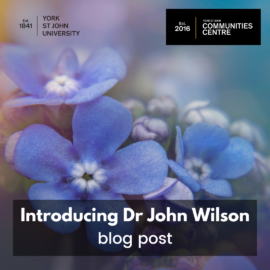I have to admit I’m the kind of person who just loves her bed. It’s warm, comfy and ‘safe’. So having children has been an almighty shock to the system. Especially having BOTH of them be very poor sleepers. For the last 7 years I have literally been surviving on coffee and sugar! I’m sure there are plenty of you out there in the same boat and understand that this is far from ideal.
This is something that I have been working on personally, and I’d like to share with you how I have been going about this.
But first, we can try and understand why this elusive activity, sleep, is so important?
There are many studies available that show lack of sleep can impact on both out short and long-term health. It is said that a lack of sleep even for just one single night can have negative impacts on our bodies. These include, but are not limited to:
- Increased stress levels
- Disturbed mood and increased irritability
- Lack of concentration, which we know could be potentially hazardous (especially if driving or carrying out safety critical roles).
If this can occur after just one bad night alone, imagine how a continuous disruption to our sleep patterns can impact on our daily lives. Some of these factors can be quite surprising!
- Increased risk of type 2 diabetes [1]
- Increased risk of breast cancer. A survey carried out by breast cancer patients found a strong link between shorter sleep patterns and the recurrence of tumours. the study showed that women who get less than 6 hours sleep each night have an increased risk for more aggressive cancer [2]
- High blood pressure. There has also been a connection made between shorter sleep duration and hypertension. Given the fact discussed above of increased stress and irritability, this is one of the less surprising factors.
- Decreased immune system. A study by the Mayo clinic showed that people who don’t sleep as much as they should are more susceptible to catching a cold, and actually gain less protection from flu vaccines [3]
- Depression and relationship problems. Again, for me this is one of the less surprising factors. Given that we are known to become mores stressed, irritable and have lack of focus, this can in turn have a negative impact on mental health. Struggle to sleep can also play a part in our brains overthinking things, which then impacts on us being able to fall asleep, and therefore this becomes an endless cycle.
- Obesity. A study carried out by Harvard University carried out brain scans on people struggling to sleep. The scans showed surprisingly that lack of sleep meant that a person was likely to be able to distinguish between high and low-calorie foods, and that the part of the brain that controls emotions and behaviour was inactive! This leads to poor choice of food consumption and overeating, leading to obesity! Other studies have found that lack of sleep may affect hormones that tell you when you are full—this causes you to overeat when you’re sleepy [4]
So, there you have it. This is why we should endeavour to try and improve on our sleep patterns, if we can. I know, it’s ok me saying this… and believe me, I am also working on this. But, what can we do to help ourselves? Here’s a few tips that I do feel have been beneficial to my own progress.
- Reducing alcohol intake: I for one have used the excuse of a drink on a night to ‘help me fall asleep’. And yes, whilst it can help you fall asleep more quickly, it also has a negative impact. Consumption of alcohol means that you fall straight into a deep sleep, which may sound fab. BUT this means that you skip the essential REM (rapid eye movement) sleep. We are supposed to have around 6 or 7 cycles of REM sleep per night, but when alcohol has been consumed you typically only experience one or two. If you weren’t aware, REM sleep aids our memory, concentration, and brain development, and therefore lack of this can have major impacts.
- Eating a balanced diet: We all know that a balanced diet is imperative to our overall health and wellbeing. But can food impact on our sleep? If you think about it, eating the wrong things before bedtime can impact on sleep. High fat foods and heavy meals increase activity in our digestive systems, which in turn can lead to late night bathroom trips – obviously disrupting sleep.
- Caffeine, a major culprit. It is advised to avoid this up to 4 hours before bedtime, as we know this is stimulating to our minds and bodies. But be wary about hidden caffeine too – chocolate, fizzy drinks, tea and even some medications!
- Exercise: It may sound obvious, but moderate to vigorous levels of exercise can help you sleep by reducing the time it takes you to fall asleep and help you to sleep better. Therefore, reducing daytime sleepiness! It can also help with excessive weight gain, meaning less chance of experiencing symptoms of Obstructive sleep apnoea! (Narrowing of the airways whilst sleeping, leading to breathing stopping and starting whilst sleeping – leading to severe tiredness)
- Essential oils: We all know that Lavender lavender is one of the most common oils to aid relaxation, and I for one second this. I have roll on essential oils that I place on my wrists at night time, and also add a few drops on a tissue next to my bed. This definitely helps me. There are a number of other oils that can also help including chamomile, bergamot, cedarwood and clary sage. A relaxing massage or foot rub with these can also work wonders. Mix the oil with a carrier oil such as coconut or almond oil and feel the benefits. They can also be used in diffusers, or sprayed around the room. The possibilities are endless!
- No screen time for an hour prior to bed: Are you used to climbing into bed, scrolling social media or turning the TV on? I for one am guilty. And it has taken me a long time to try and shift this habit. Instead, when feeling a bit sleepy, I will take myself up to bed. Grab a book and read. This is a fab form of escapism, and I find that whilst it is stimulating, it has the total opposite effect of staring at a screen! It helps me relax and unwind, and I find that when I am tired, I stop – and sleep! Hurrah!
I do hope that my tips can help in some way, please do let us know how you get on and feel free to share any tips that you have found to help also!
Happy sleeping!
Kirsty x
References
1. The university of Minnesota. Why Is Sleep Important? | Taking Charge of Your Health & Wellbeing (umn.edu) accessed 13/03/2022
2. Thompson, C.L., Li, L. (2012). Association of sleep duration and breast cancer OncotypeDX recurrence score. Breast Cancer Research and Treatment; 134(3), 1291-5.
3. Lack of Sleep and the Immune System (webmd.com) accessed 13/03/2022
4. Patel, S.R. (2009). Reduced sleep as an obesity risk factor. Obesity Reviews;10 Suppl 2:61-8. Accessed via Why Is Sleep Important? | Taking Charge of Your Health & Wellbeing (umn.edu) 13/02/2022




I find the link between poor sleep and overeating interesting, I thought the high sugar/fat snacks were a way of getting a quick energy shot but having had an extended period of abstinence from alcohol I’ve found that that made no difference at all for me. So many different factors to consider. Interesting read, thank you.